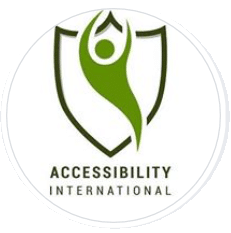Financial institutions like banks, investment companies, and accounting firms provide a safe place for customers and investors to maintain and grow their financial assets. Customers now expect to monitor their assets online through a website or app, often in the form of PDF documents. Saving financial documents as PDFs makes them easier to produce securely and consistently. However, PDFs are often inaccessible to people using assistive technology. With over 25% of the population having some disability, digital accessibility is vital to the success of both your clients and your business. Clients and employees who use devices like screen readers or refreshable Braille displays may be unable to access necessary documents. PDF remediation can solve that problem.
PDF documents that need to be accessible:
- Monthly bank statements
- Investment growth reports
- Earnings reports
- Transaction history
- Market trend reports
- Informational brochures about types of accounts
- Booklets of stock options
What laws apply?
While there are no specific laws governing exactly how a website must be made accessible, the Supreme Court has shown its support for lower, circuit courts who have ruled that public-facing websites are places of public accommodation. The ADA covers even digital places of public accommodation, especially when they have a nexus to a physical location. That means any bank or financial institution that is open to everyone must make sure that none of its offerings or services are exclusive to any one group of clients or prospective clients, including its websites, apps, and any files on those sites, or they will be in violation of the ADA.
What standards should you meet to be ADA compliant?
The ADA doesn’t specifically outline digital accessibility standards. The Department of Justice has left digital accessibility vague because accessibility will look different for each website depending on its content and structure.
However,Web Content Accessibility Guidelines (WCAG) will give you the most comprehensive standards for ensuring an accessible website. WCAG is the industry standard, though it’s not officially part of ADA regulations. A number of different countries and circuit courts in the US consider it the standard for digital accessibility.
What happens if your website isn’t compliant with the ADA?
Your clients and employees- as many as 25% of them- won’t be able to access important financial documents. There’s a chance their frustration will lead to legal action against your company, as it has for many others. If there are a number of other clients who also are unable to access important documents, you might be faced with a class-action ADA lawsuit. Legal risks amount to one major issue- they cost a lot of money.
Customers could become frustrated enough to take their money elsewhere if they cannot access their information. They may also tell their friends and family that your company doesn’t consider their needs. Out of support for their loved one, those people may also invest or bank elsewhere.
Whether you’ve lost a client or are facing a lawsuit, inaccessible PDF documents will cost your company reduced income and increased expense. Completing PDF remediation to make those documents accessible can save your company time and money.
Past Cases:
 It’s becoming more and more common for clients who can’t access their financial information to file suit against their bank or investment firm for failing to make documents accessible.
It’s becoming more and more common for clients who can’t access their financial information to file suit against their bank or investment firm for failing to make documents accessible.
Aldworth v TD Ameritrade, Inc.
Elizabeth Aldworth is a resident of New York who is blind. She opened an investment account with Scottrade in 2008 and had no trouble accessing her account information digitally. A year later, TD Ameritrade purchased Scottrade. Aldworth attempted to log in to the new platform and discovered that her Roth account information was no longer accessible with her assistive technology. A number of features, including drop-down menus, form fields, and even the fine print were inaccessible. She filed a class-action lawsuit on behalf of investors who are blind. Aldworth and Ameritrade were able to reach a settlement, but Ameritrade also agreed to pay to remediate their website, pay Aldworth’s court costs and legal fees, as well as punitive damages.
Rizzi v Morgan Stanley
Morgan Stanley faced similar litigation from Albert Rizzi, a New York nonprofit owner who is also blind. Rizzi had multiple accounts with Morgan Stanley and was unable to access his account information through their website. Their website was not built to be compatible with Rizzi’s assistive technology. The website also fails to mention a policy by which site visitors can report accessibility errors. He asked the company on several occasions to fix the inaccessible elements of the website but received no response.
Meanwhile, Rizzi had to rely on others to read him his financial statements, leaving his personal information vulnerable to theft. “I am still struggling to read the statements from my brokerage account, and am often left to rely on sighted assistance, which can expose me to identity theft or worse,” Mr. Rizzi said. Recently, his personal financial information was compromised. “There is significant room for improvement across the board, and I have yet to, personally or professionally, find that one institution that has it right.”
Rizzi even offered to help Morgan Stanley identify and solve the accessibility issues because his nonprofit specializes in those services. When they failed to respond, Rizzi filed a lawsuit for $9 million in damages. Morgan Stanley settled the case.
Gonoude v Morgan Stanley
Georgann Gonoude also filed a lawsuit against Morgan Stanley in opposition to its inaccessible website. Gonoulde was unable to access her financial information digitally. She also requested that her advisor withdraw some of her investment funds to pay on a personal loan. She didn’t know that her investment banker hadn’t withdrawn that money because she was unable to access her account information. This caused an unnecessary increase in charges on the unpaid loan. The damage done by this whole ordeal went beyond the added expenses. In addition, the suit claims that having to turn to others to access her accounts made Gonoude feel like an “incapable, dependent, disabled individual, which is exactly what she has promised herself she would not be since she lost her eyesight, causing her emotional distress, anxiety and pain,” according to FundFire.
PDF Remediation can help prevent litigation:
When you decide to prioritize digital accessibility, make sure all your digital resources are accessible, not just your website. You must also make video files, audio files, and PDF documents accessible to everyone, whether they stored on your website or sent to customers. These PDFs might be individual documents such as market trend reports, informational brochures about types of bank accounts, or booklets of stock options, which are quickly and easily remediated in-house with a PDF remediation software such as Equidox.
Other PDFs may include mass-produced form documents with differing information for each client, including monthly bank statements or investment growth reports. PDF remediation can be done in bulk for these documents using a batch processing service like the one offered by Equidox. Custom coding can be created just for your batch documents to identify key components on the page and recognize the varying data automatically and instantly.
Book a free demo to see how Equidox makes PDF remediation fast and easy!





